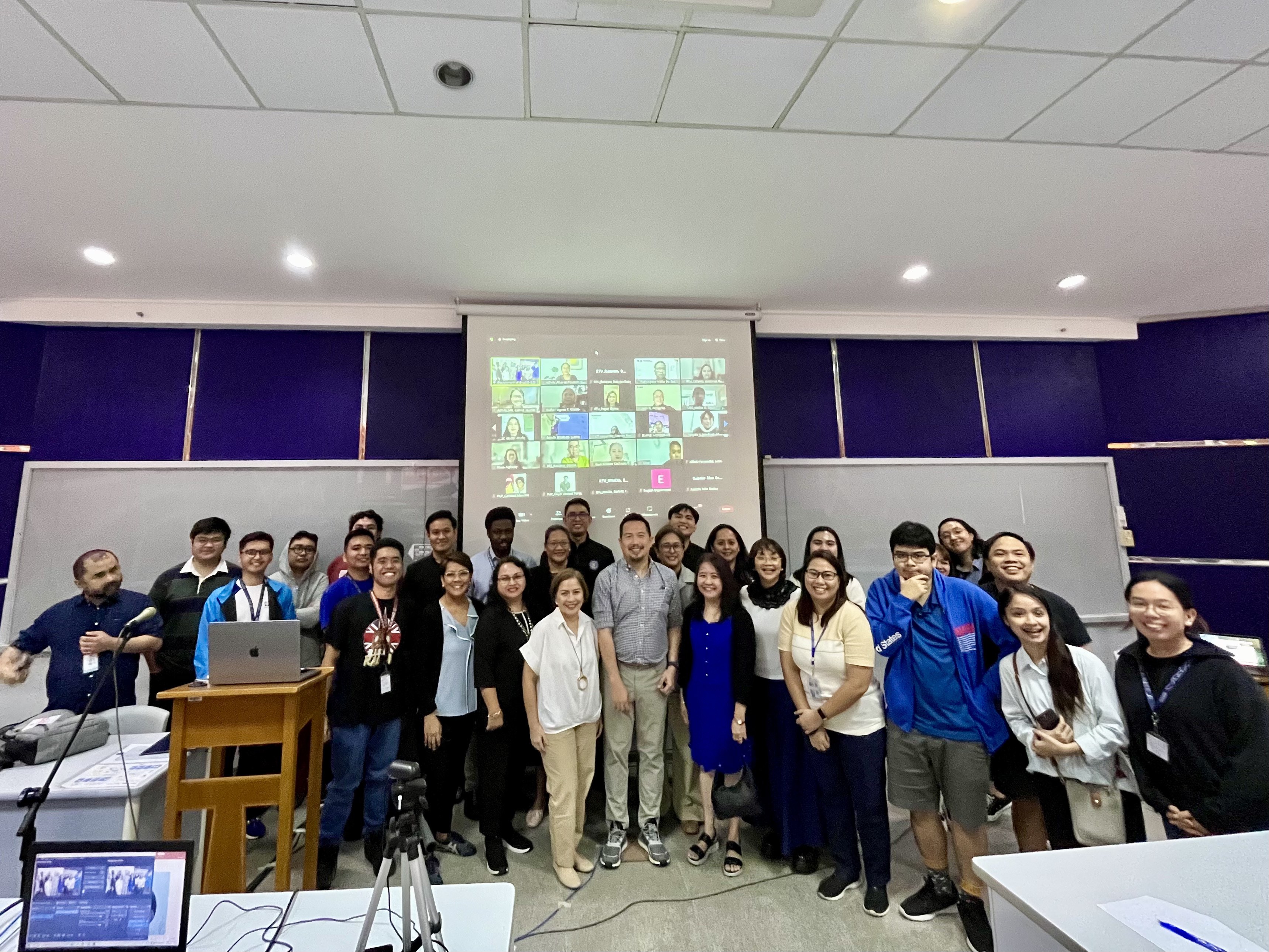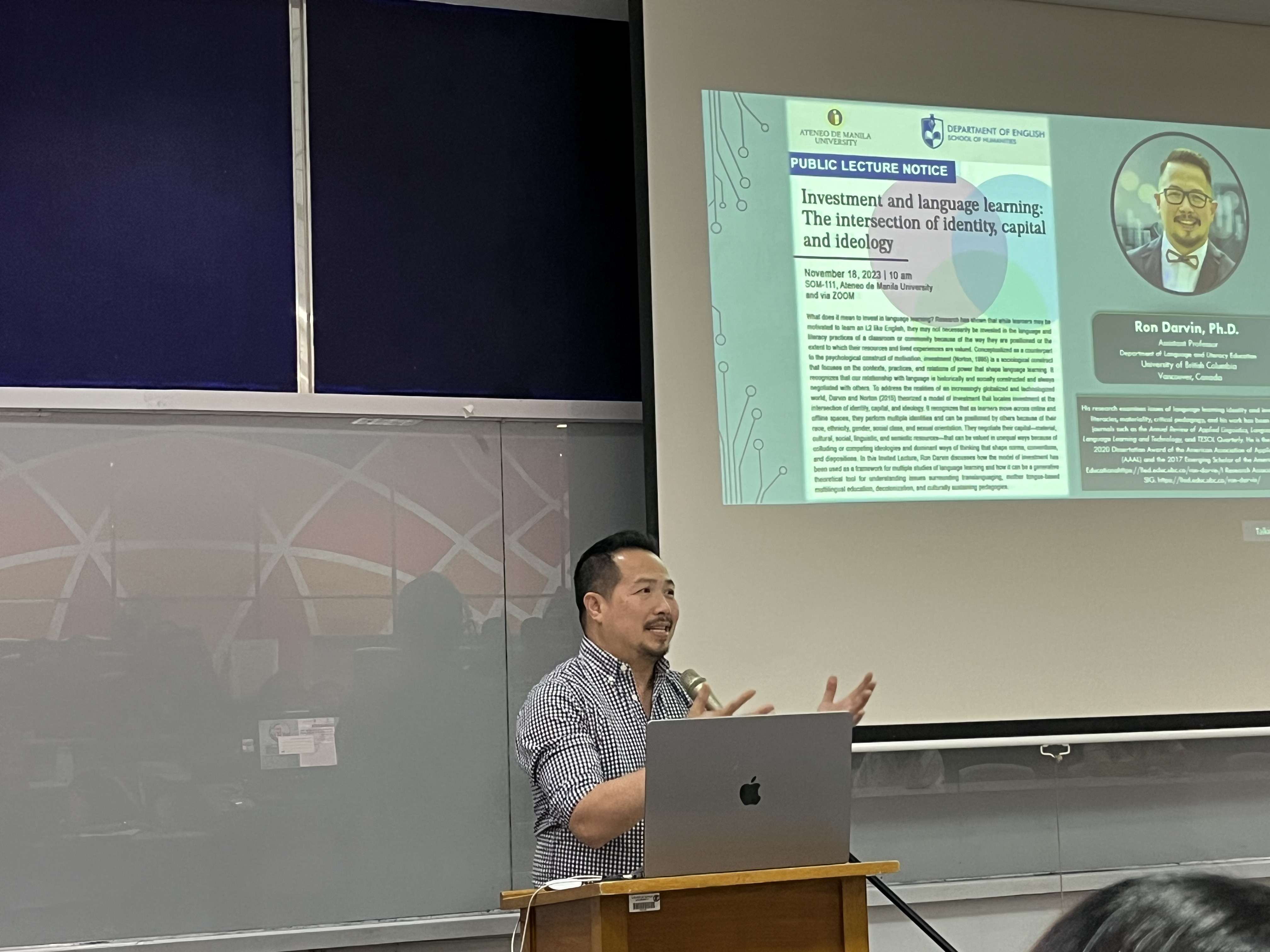Exploring language learning: Unpacking investment and identity assertion with Ron Darvin
Ron Darvin, an esteemed Ateneo alumnus and Assistant Professor at the Department of Language and Literacy Education of the University of British Columbia in Vancouver, Canada, explored how learners of different social positions invest in language learning and claim their right to speak in his Invited Lecture on November 18, 2023, hosted at Ateneo de Manila and Zoom.
His lecture stressed the nature of language learning as involving linguistic acquisition and entailing cultural, social, and personal dimensions.
“For me, when I think about language learning, it’s not just being in a classroom and learning your subject-verb agreement. Learning comes with the use of language, meaning that as we interact with people in different spaces, being able to speak a target language with confidence, with the belief that you are a legitimate speaker of that language,” Darvin said.
He also emphasized the significance of investment, a term that Dr. Bonny Norton first used in 1995. In the context of language learning, investment refers to the social, cultural, and personal resources that learners bring to their language learning journey. It is a counterpart to Howard Gardner’s psychological construct of motivation in learning a second language (L2), such as English, as the latter may not always be enough.
Darvin and Norton proposed a model of investment that locates it at the intersection of three critical dimensions: identity, capital, and ideology.
In this model, Darvin and Norton assert that learners navigate a variety of spaces, both online and offline, creating and performing multiple identities, thereby engaging with language and literacy practices shaped by factors such as race, ethnicity, and social class.
Darvin also noted the importance of capital—the various material, cultural, social, linguistic, and semiotic resources that learners negotiate across various spaces.
"Yes, identity is important…but at the same time…what I bring to the table, what resources I have, is also important. And resources, as I use here… are not just the physical but everything that is also symbolic…and that while we move across…online and offline spaces, there are also different ideologies or ways of thinking that are dominant," he added.
Darvin, therefore, underscored learners’ need to navigate ideologies—both those that reinforce existing power structures and those that challenge those structures—that shape norms, conventions, and dispositions related to language as they invest in their language learning journey.

In his lecture, Darvin advanced several pedagogical approaches anchored on his and Norton’s investment model to enable learners to invest in language learning and claim their right to speak, which embrace translanguaging, mother tongue-based multilingual education, decolonization, and culturally sustaining pedagogies.
“In the end, I’d say that for learners to invest, to choose to commit to learning something like English, we recognize that they need to navigate these different ideologies online and offline to negotiate their identities and resources, to be able to assert their legitimate place, and for me, this is at the core of what it means to invest in the language and literacy practices of different spaces of different communities,” Darvin closed.
This invited lecture is part of the Department of English, School of Humanities’ series of free, public lectures.
Article by Mariz Geraldine Jose


